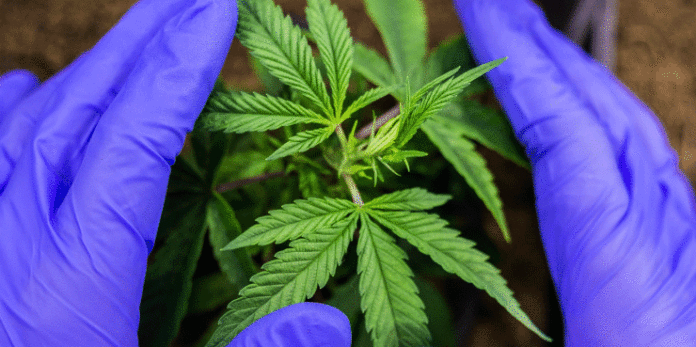Back in August, the U.S. Department of Health and Human Services (HHS) officially recommended that marijuana be reclassified from Schedule I to Schedule III under the Controlled Substances Act (CSA).
For the first time in the history of our country, the federal government is acknowledging medical efficacy and the safety of cannabis and is moving away from the failed and devastating war on drugs.
What Would Rescheduling Do?
Under the CSA, drugs are categorized within five schedules generally based upon abuse potential, the accepted medical use and its safety and dependence. Schedule I substances are the most highly regulated.
- Schedule I: The abuse potential is high, there is no accepted medical use and there is a lack of accepted safety for use under medical supervision. Some examples of Schedule I drugs include heroin, lysergic acid and diethylamide (LSD).
- Schedule II: The abuse potential is high, although these substances do have accepted medical use. Substance abuse may lead to severe dependence. Some examples of Schedule II drugs include cocaine, methamphetamine and oxycodone.
- Schedule III: The abuse potential is less than Schedules I and II, there is accepted medical use and substance abuse may lead to moderate or low physical dependence or high psychological dependence. Some examples of Schedule III drugs include ketamine, anabolic steroids and testosterone.
- Schedule IV: The abuse potential is less than Schedule III, there is accepted medical use and substance abuse may lead to a limited dependence relative to Schedule III. Some examples of Schedule IV drugs include alprazolam (Xanax®), carisoprodol (Soma®) and clonazepam (Klonopin®).
- Schedule V: There is abuse potential, albeit slight, there is accepted medical use and substance abuse may lead to a limited dependence relative to Schedule IV. Some examples of Schedule V drugs include cough preparations containing not more than 200 milligrams of codeine per 100 milliliters or per 100 grams (Robitussin AC®, Phenergan with Codeine®) and ezogabine.
Notably, in addition to easing some regulatory barriers to cannabis research, rescheduling cannabis to Schedule III would:
- Reduce criminal penalties for cannabis-related violations of the CSA
- Eliminate the 280E tax problem for cannabis businesses
- Relax various other regulatory burdens like quota requirements, security regulations, etc.
- Take a significant incremental step toward normalizing cannabis under federal law
- Support congressional efforts toward prohibition
What Are the Next Steps in Rescheduling?
What initially started this whole process was President Biden’s announcement on October 6, 2022 directing the HHS secretary and the attorney general to initiate the administrative process to review cannabis scheduling. Shawn Hauser, Partner at Vicente LLP, said in a webinar that historically, this process has taken an average of nine years. However, the goal is to conclude this process for cannabis prior to the next election.
Jason Adelstone, Senior Associate at Vicente LLP, said in the same webinar that after President Biden’s announcement, the HHS submitted its recommendation based on a medical and scientific analysis to the Drug Enforcement Administration (DEA) on August 29, 2023.
From here, the CSA requires the DEA to base its scheduling decisions on three criteria:
- Whether the substance in question has a medical use (only federally legal research on cannabis will likely be reviewed)
- Its potential for abuse
- The extent to which the substance is unsafe or addictive
The DEA must accept HHS’ recommendation on medical and scientific matters. If the DEA says yes, then they shall initiate proceedings accordingly. If they say no, the DEA will enter a final order denying the scheduling request, publish its final order in the Federal Register and place its and HHS’ analyses in a public rulemaking docket, according to Adelstone.
Currently, we are waiting for the DEA’s determination as to the HHS’ recommendation. Adelstone notes that the DEA generally takes 30-90 days to publish a proposed rule and request comment. The comment period usually lasts 30 days, but can be extended to 60 days, if determined necessary. The timeline on DEA’s final rule is uncertain, but it could be as early as the end of 2023.
The Impacts of Rescheduling on the Industry
Charlie Alovisetti, Partner at Vicente LLP, said in the webinar that rescheduling cannabis would have quite an impact on 280E and capital markets. It would not only remove cannabis from the purview of the 26 USC 280E tax penalty, but there would also be legal protections for operators for things such as bankruptcy and federal trademarks.
The potential impact rescheduling would have on ancillary (banking, insurance) services, include:
- Providing licensed businesses increased access to financial services
- More financial institutions and financial service providers may re-evaluate their participation in this industry, particularly with appropriate enforcement discretion memos in place
Brian Vicente, Founding Partner at Vicente LLP, adds that rescheduling would have incremental progress on the cannabis industry. Not only would it send a strong message to the justice system that cannabis is a lower enforcement priority, but the President can also direct the Department of Justice (DOJ) to exercise discretion in not prosecuting some or all marijuana-related offenses.
While rescheduling cannabis would entirely change the industry, and it would still be federally illegal, it can definitely push the government in the right direction and move farther away from the war on drugs.










